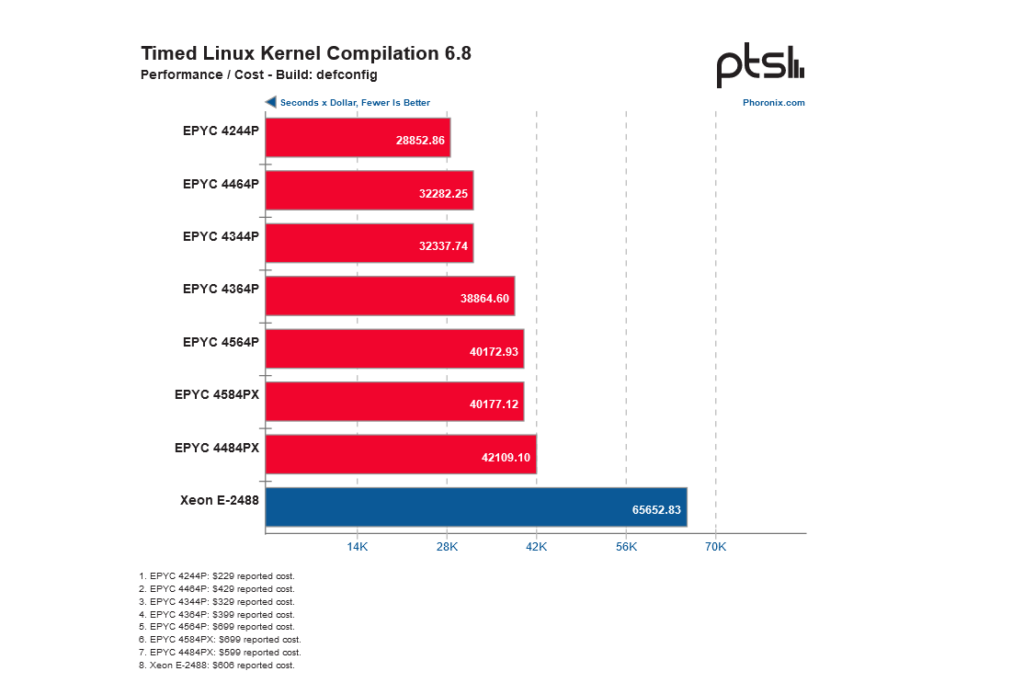The EPYC 45x4 class processors with 16 cores and boost speeds above 5GHz can still result in fast build times even though they aren't as fast as
The EPYC 45×4 class processors with 16 cores and boost speeds above 5GHz can still result in fast build times even though they aren’t as fast as the EPYC 8004/9004 series with much higher core counts. These new processors can be used for a development workstation, CI/CD server, or other low-cost build environment. The default Linux x86_64 kernel could be compiled in less than a minute by EPYC 4654P and 4584PX. Given its meager eight cores, the top Xeon E-2488 CPU was predicted to fall short of the EPYC 4004 processors. Even slower than the 8-core EPYC 4344P/4364P CPUs was the Xeon E-2488.
How on earth could the Xeon E-2488 outperform the 8-core EPYCs? Looking at the highest CPU frequency reached during the benchmark runs, the EPYC CPUs averaged 4.7~5.1GHz for their peak frequency during this benchmark run, while the Xeon E-2488 achieved about 4.39GHz on any of its cores.
The Xeon E-2488 was surpassed by the 8-core EPYC CPUs and their use of less power! The EPYC 4344P had an 80-watt average with a 90-watt peak, while the E-2488 had an average of 95-watt. The 16-core EPYC 4564P and the Xeon E-2488 shared a 194-watt peak power usage, which was somewhat embarrassing. The EPYC 4584PX particularly caught our attention because of its excellent power economy and construction speeds.
The total AC (wall) power consumption was comparable to the CPU power usage. The Xeon E-2488 system power was 147 Watts, with a peak of 270 Watts during the Linux kernel construction process. With significantly superior performance, the EPYC 4584PX had an average power usage of 168 Watts and a peak power consumption of 203 Watts.
In addition to offering superior raw performance and power efficiency, the EPYC 4004 series achieved a triple win in code compilation workloads, resulting in much higher performance per dollar based on all CPU list prices.
Similar outcomes were observed when building other game engines, such as the Godot game engine.
During the compilation of Node.js, the Xeon E-2488 was compared to AMD’s EPYC 4244P 6-core CPU, which is AMD’s $229 processor against Intel’s $606 processor.
The AMD EPYC 4004 outperformed Intel’s top-tier Xeon E series processor, consistently achieving excellent results in every code compilation workload.
Share this content:
COMMENTS